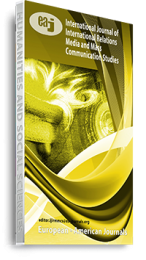The digital age and social media platforms like X (formerly Twitter) have had a profound impact on the global landscape of diplomatic activities. This article attempts to illustrate the research gaps regarding the underestimated role of citizens and non-governmental actors in shaping public diplomacy at the digital level in semi-democratic countries such as Turkey. In light of this context, the pivotal question here is: how can we strengthen the fundamental framework of digital public diplomacy to effectively counter conflicting digital narratives, such as the rise of digital “erdoğanism” in times of crisis? This article also employs a theoretical approach, drawing from both qualitative content analysis and quantitative analysis of 261 tweets from five Turkish institutional X accounts, to investigate the marginalization of digital public diplomacy in Realpolitik decision-making periods. More precisely, there is a focus on a critical overview of the interplay between public diplomacy theory and soft power, while also aiming to specify how Turkey’s new public diplomacy tends to transform over time into a mask digital diplomacy. The initial findings indicate that in authoritarian, non-liberal regimes like Turkey, there is a utilization of a person-centered digital diplomacy approach that leans towards a “status-seeking” power, attempting to empower its previous policy aspirations. This research article concludes by suggesting that new public diplomacy has to be further analyzed, combined with AI’s challenge and its possible future abuse by non-liberal countries, through Turkey’s digitized public diplomacy example.
Keywords: Digital Diplomacy, New Public Diplomacy, Turkey, X (formerly Twitter), soft power

